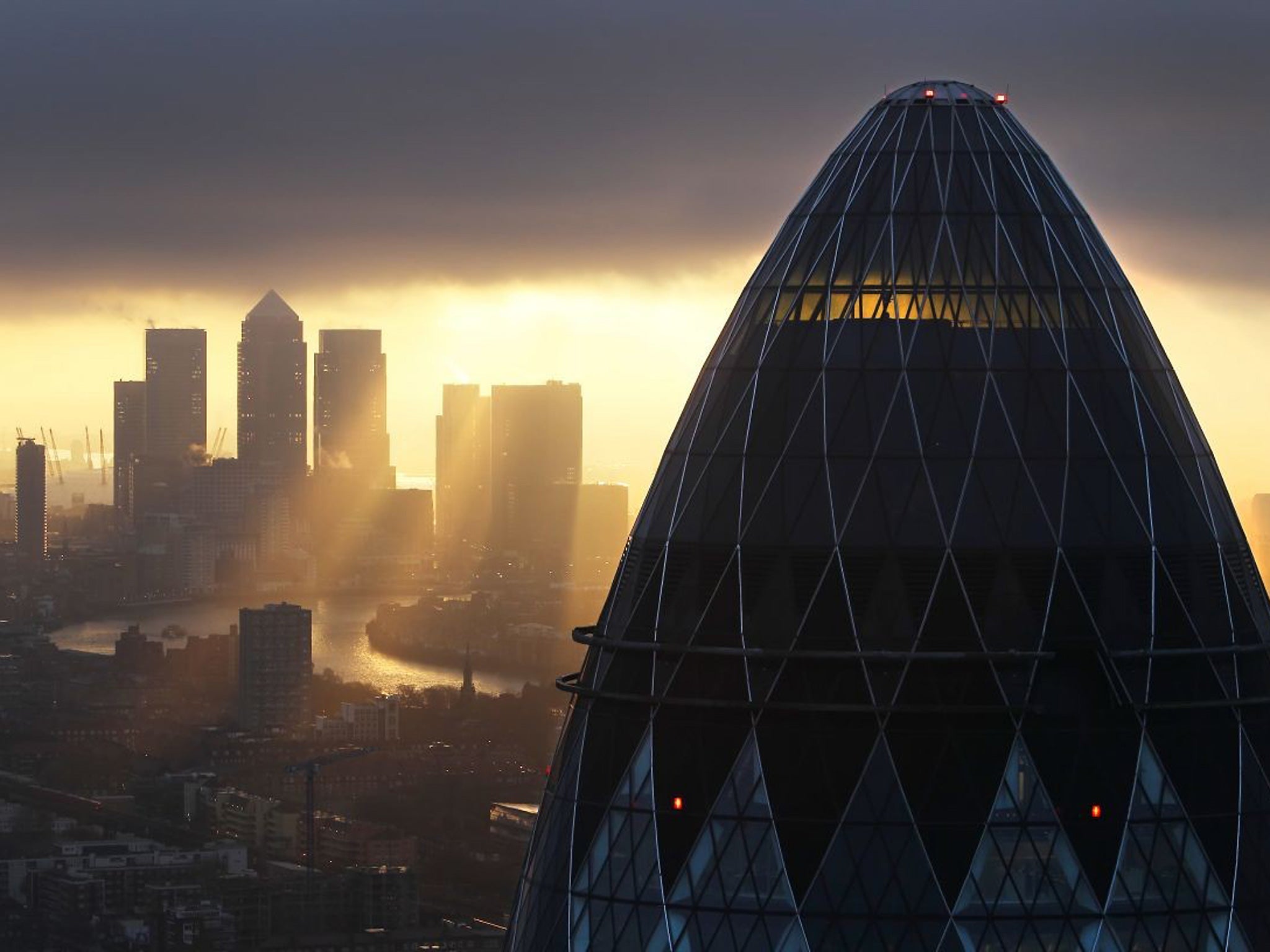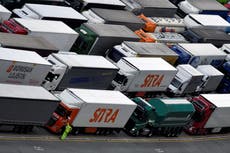Banks have done little to help the country through the pandemic, so why is the government rewarding them?
Lenders are set to receive £1bn in interest on loans while taxpayers take on all the risk - it’s another implicit bank bailout

Your support helps us to tell the story
From reproductive rights to climate change to Big Tech, The Independent is on the ground when the story is developing. Whether it's investigating the financials of Elon Musk's pro-Trump PAC or producing our latest documentary, 'The A Word', which shines a light on the American women fighting for reproductive rights, we know how important it is to parse out the facts from the messaging.
At such a critical moment in US history, we need reporters on the ground. Your donation allows us to keep sending journalists to speak to both sides of the story.
The Independent is trusted by Americans across the entire political spectrum. And unlike many other quality news outlets, we choose not to lock Americans out of our reporting and analysis with paywalls. We believe quality journalism should be available to everyone, paid for by those who can afford it.
Your support makes all the difference.Things might seem a bit doom and gloom for most of us at the moment, but not quite so much for the banks, who reported better-than-expected Q3 results last week. After Barclays recorded a net-profit of £611m between July and September, HSBC and Lloyds upped them with profits of more than £1bn each, and NatWest £355m.
These relatively upbeat reports are in no small part thanks to the various ways banks have sought to profit from the Covid crisis, often aided by the government.
As a report from the IPPR set-out in May, the government’s support to households and businesses have prioritised the interests of banks and other rentiers ahead of everyone else. No more is this the case than in the reliance on state-guaranteed loan schemes to get emergency support to business, which are allowing banks to profit from new streams of interest payments, while passing on the risks to the rest of us.
The so-called ‘Bounce Back Loan Scheme’ (BBLS) came as lenders dragged their feet on doing their bit and lending to small businesses, protesting about the risks of borrowers being unable to repay. After lobbying from the banks, the Treasury decided to run with a scheme modelled on a Swiss programme in which loans are fully guaranteed by the government.
There is however one crucial difference between the BBLS and the Swiss scheme - in Switzerland banks are forbidden from charging interest on state-backed loans up to 500,000 Swiss Francs (£420,000), whereas this condition was dropped for UK lenders, who are able to charge interest of 2.5 per cent per annum on 100 per cent guaranteed loans up to £50,000.
2.5 per cent interest might not sound like much, but as the National Audit Office reports, it means that banks are expected to net more than £1bn from the government in the first year of interest payments. This dwarfs the £150m the government is refusing to spend to feed hungry children.
Meanwhile, forecasters predict that as much as 60 per cent of covid business loans could fail. The fact these loans are underwritten by the government means we’d be walking into an implicit bank bailout, in the tens of billions of pounds. Far from bouncing back, many businesses will be burdened with unpayable debts and pushed under, but the banks will be looked after and paid out from the public purse, just like in 2008.
Perhaps one reason this hasn’t sparked more outrage is that many people, including politicians, falsely assume that banks are lending out our savings when they are making these loans, which would be put directly at risk if businesses aren’t able to repay.
But the truth is that banks are creating new money ‘out of thin air’ when they make such loans. Sure, these loans ultimately have to be funded with matching liabilities, whether that is from deposits or wholesale funding, but banks are currently able to obtain these funds at near-zero percent interest, offering them a nice spread on loans for which the government has agreed to cover losses.
This is not to say that banks don’t need to be cautious. Due to the nature of a system where loans aren’t derived from existing pools of savings, banks remain highly leveraged. A small fall in asset prices could be enough to push UK lenders into insolvency, if you are to believe former Bank of England regulator Dean Buckner and Professor Kevin Dowd. But if banks are so concerned about the risks of lending at the moment, why are they at the same time lobbying to waste precious capital on dividend payouts to shareholders?
In March, the Bank of England made an unprecedented intervention in ordering banks to stop paying out dividends, indulging in share buybacks and dishing out bonuses until the end of 2020, after banks refused to cancel such plans voluntarily. But now banks are reportedly ‘bartering’ an agreement with the central bank which would allow them to resume shareholder payouts.
As the Covid crisis worsens, and many businesses and households continue to suffer, banks should be preserving capital to support lending, not wasting it on dividends. Rewarding shareholders should be at the bottom of lenders’ priorities at the moment, and we need the Bank of England to stand up to them on this.
It is fair to say that banks’ behaviour during this pandemic has not been worthy of reward. Not only did banks carry out their duty of lending to small businesses begrudgingly and belatedly, they even tried to force borrowers to put forward personal collateral for state-guaranteed loans.
Though the Bank of England cut its base rate to a record low of 0.1 per cent in March, high-street banks have failed to pass this onto you or I. Two-year fixed mortgage rates have actually increased at the steepest rate in a decade. Banks have also hiked rates on personal loans, and gone ahead with plans to more than double rates on overdrafts to an eye-watering 40 per cent, just when they are needed the most for households to make ends meet.
NatWest (formerly RBS) has been guilty of inexplicably closing customers accounts without warning, leaving many suddenly with no means of paying for essentials during this difficult time. Now most banks are refusing to allow businesses to open new accounts, which doesn’t bode well for any recovery.
The big banks have shown they cannot be trusted to put the public interest ahead of the interests of their shareholders, even during a national public health emergency. Part of ‘building back better’ must be building a banking system that is ready and willing to support communities in both normal and difficult times. Sadly Britain’s big shareholder banks are unable to do either, and unless we overcome our reliance on them, we risk defaulting on a truly fair recovery.
Simon Youel is Head of Policy & Advocacy at research and campaign group Positive Money





Join our commenting forum
Join thought-provoking conversations, follow other Independent readers and see their replies
Comments